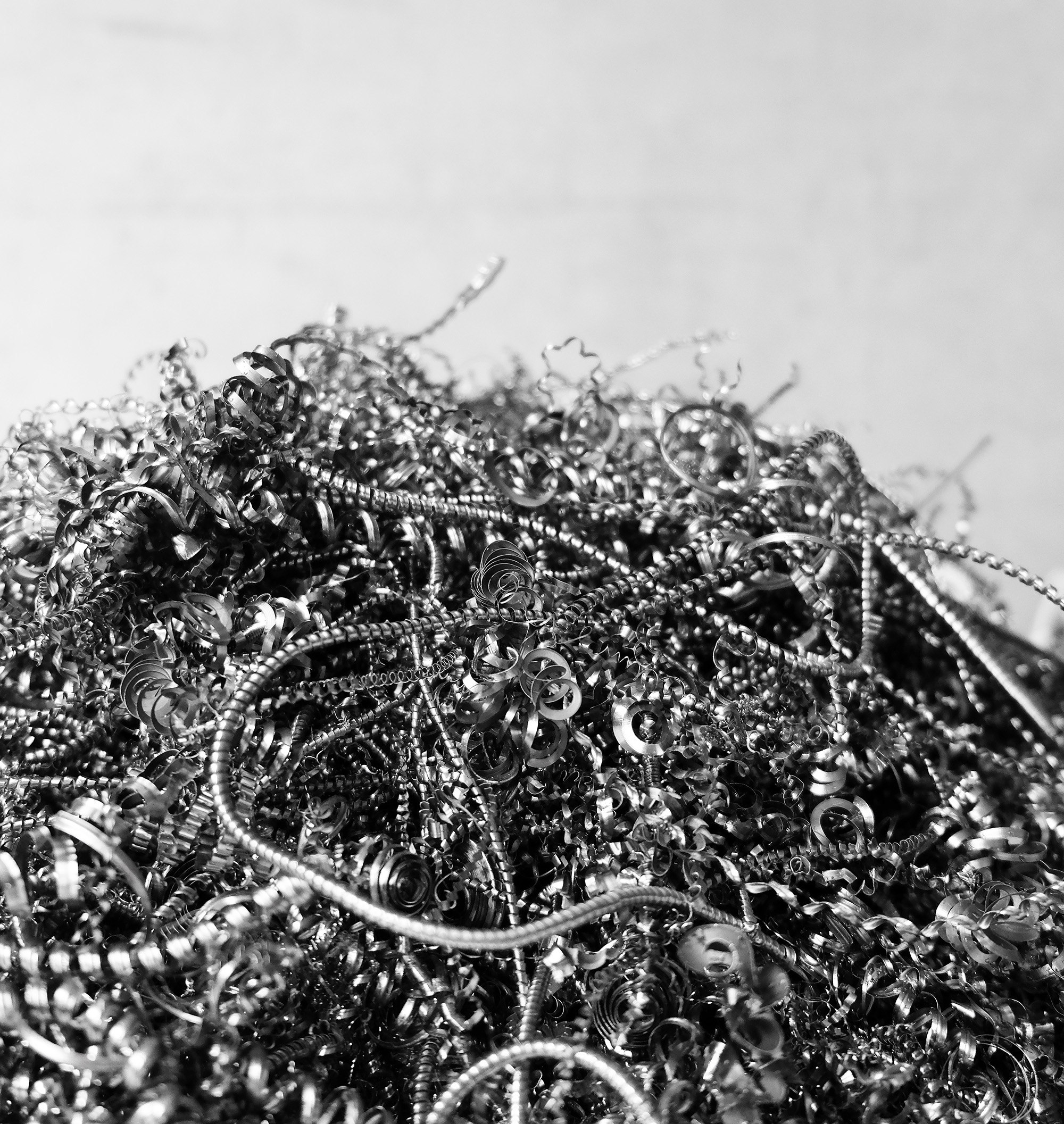With around 140,000 tonnes imported every year, Switzerland is a major consumer of stainless steel, a raw material used in industries such as watchmaking, medical equipment and aeronautics. “At the same time, we export 51,000 tonnes as production scrap,” says Raphaël Broye, CEO of Panatere, a company that specialises in machining parts for the micro-engineering industry. He is the brains behind a network that collects and recycles waste stainless steel. This initiative, which embraces the ideas behind the circular economy, stemmed from his wish to improve the quality of the raw material. And this urban mining approach makes even more sense given the planet’s dwindling resources.
Raphaël Broye talked 52 businesses in the Swiss Jura’s Watch Valley into pooling their production scrap so that it could be recycled. Recovered by a collection company, the scrap is painstakingly sorted into different grades using a very strict method verified by an independent auditing company. The waste is melted and then re-enters the stainless steel circuit. Every year, 100 tonnes of production scrap are recovered and processed, ten tonnes of which are melted in a solar oven in France. “That’s not much, but it’s just the start,” says Raphaël Broye. “If we were to recover just 10% of the waste that is exported, we could supply 600 Swiss businesses with recycled stainless steel.”
Leading the way, Panatere itself uses only 100% recycled zero-carbon stainless steel. This is used to make parts such as the cases of the innovative eco-friendly watches manufactured by ID Watch. And Panatere now is looking into building its own solar oven – right in the heart of Watch Valley. “Our vision is to develop totally energy-self-sufficient production units in Switzerland and then export this model to encourage the widespread use of eco-friendly materials that don’t involve the use of fossil fuels or electricity,” adds Raphaël Broye. And the international prospects look good. Several major cities and industries have shown an interest in Panatere’s model, including aluminium manufacturers in Germany’s Ruhr region, who are keen to adopt this circular economy model.

Panatere SA